- Home
- Parnell Hall
The Witness Cat (Steve Winslow Mystery)
The Witness Cat (Steve Winslow Mystery) Read online
The Witness Cat, a short story
Parnell Hall
Copyright © 2001, 2013 by Parnell Hall
Published by Parnell Hall, eBook edition, 2013.
Published by Parnell Hall, 2013.
Originally published by Tekno Books in Murder Most Feline: Cunning Tales of Cats and Crime, 2001.
All rights reserved. Written permission must be secured from author/publisher to use or reproduce any part of this work, except brief quotations in critical reviews or articles.
ISBN (Kindle): 978-1-936441-59-4
Table of Contents
Short Story
Books by Parnell Hall
STEVE WINSLOW WAS having a bad day. It started off with a witness giving him fits and ended up with his secretary not speaking to him.
Steve was getting nowhere with this witness. The more he cross-examined, the worse it got. Russ Overmeyer sat on the witness stand, smug, self-satisfied, fielding all his questions and turning them back against his client. And this was the key witness. If Steve Winslow couldn’t shake Overmeyer’s testimony, the defendant was sunk.
Steve Winslow glanced over at the defense table where his client sat. A wizened old man with a stubborn streak and an irascible nature, Clinton Hobbs was glaring at him with cranky eyes. Which was not surprising. Steve Winslow was Mr. Hobbs’s court-appointed lawyer, assigned because the defendant was indigent and could not afford to hire an attorney for himself. And Mr. Hobbs could not have been less happy with the choice. With long hair, blue jeans, and corduroy jacket, Steve Winslow looked like a leftover from the sixties. That, coupled with the fact he was much too young to actually be from the sixties, did not exactly inspire Mr. Hobbs with confidence. Steve Winslow was acting as his attorney only because the judge would not allow him to choose another.
Which had to be rather frustrating for someone accused of murder.
Steve Winslow pushed the hair out of his eyes and cocked his head at the witness. “Well, then, Mr. Overmeyer. Getting back to the night in question when you claim you saw my client leaving the bedroom of the decedent—”
The prosecutor, Assistant District Attorney Harvey Beerbaum, was on his feet. “Objection to the word claim, Your Honor. The witness isn’t claiming anything, he’s stating what he saw.”
Judge Judith Weston banged the gavel. A tough, no-nonsense jurist, Judge Weston did not take kindly to technical objections. “Overruled,” she snapped. “I have confidence the witness can take care of himself. And I would thank you to state your objections at the sidebar, not in front of the jury.”
“Yes, Your Honor,” A.D.A. Beerbaum said.
“Would the court reporter read back the question?”
“Actually, I believe I was interrupted before I asked the question,” Steve Winslow said.
“Then ask it now,” Judge Weston said irritably.
“Yes, Your Honor.” Steve Winslow glanced at the prosecutor. Their eyes met, and Steve smiled. It dawned on A.D.A. Beerbaum that Steve Winslow had deliberately goaded him into annoying the judge.
“Now then, Mr. Overmeyer,” Steve Winslow continued. “On the night in question, the night your uncle was killed, the night you claim you saw the defendant coming from his room—just what time did this supposedly happen?”
Russ Overmeyer had a round face, shiny bald head, and twinkling eyes. “It was 9:35.”
“Really? How do you fix the time?”
“By television. I was watching a nine o’clock sitcom. It had just ended, and I was on my way to the kitchen to make myself a sandwich.”
“Where were you watching television?”
“In my bedroom.”
“Were you alone at the time?”
“Yes, I was.”
“And where was your bedroom with relation to the decedent’s?”
“It’s in another wing.”
“Another wing?”
“Yes. My uncle’s mansion has thirty-four rooms. His bedroom is part of a suite of rooms on the east wing of the second floor. My bedroom is a single room in the west wing. I should explain I do not live in the house. I have an apartment in Manhattan. When I’m out on Long Island, I often stay over.”
“And this was one of those nights?”
“That’s right.”
“So you were in your bedroom watching television. The show ended, and you went to the kitchen to make a sandwich. And just what happened then?”
“As I say, I saw the defendant, Clinton Hobbs, come out of my uncle’s bedroom.”
“You’re certain it was the defendant you saw?”
“Yes, I am.”
“You know him well?”
“Of course. He’s been the caretaker for years.”
“Do you know him personally? Have you ever spoken to him?”
“I have spoken to him. As to knowing him personally, he’s not an easy person to get to know. But I certainly know who he is.”
“Did you speak to him on this occasion?”
“No, I did not. And I wouldn’t have wanted to.”
Steve Winslow frowned. The witness had thrown it out tauntingly, daring him to ask. If he didn’t, he’d lose considerable points with the jury. If he did, it would probably be worse.
Steve Winslow took a breath. “Why wouldn’t you have wanted to speak to him?”
“Because of his manner. He was irritated, angry, and upset. As if he’d just gone through some emotional trauma.”
Steve Winslow didn’t object, just nodded thoughtfully. “That’s how you would characterize it?”
“That’s right.”
“You had reason to be concerned?”
“Of course.”
“Because you’d seen him coming from your uncle’s room?”
“That’s right.”
“So you rushed to your uncle’s room to see what had happened.”
“No, I didn’t.”
“You didn’t?”
“No.”
“Why not? If you were so concerned, why didn’t you check on your uncle?”
“It didn’t occur to me.”
“It didn’t occur to you to check on him?”
“No.”
“So you weren’t concerned about him, were you?”
“I was concerned. I knew that they’d had a fight. But it never occurred to me that Clinton had killed him.”
“You find that hard to believe?”
“Actually, I do. Mr. Hobbs had been the caretaker of my uncle’s house for more than twenty years. I knew he was a difficult man with a violent temper. But I did not know he would stoop to murder.”
“And you don’t know it now, do you?”
Russ Overmeyer smirked. “No, I don’t. Because I didn’t actually see him do it. I am concluding he did it from the circumstantial evidence. From the fact I saw him leaving the room. From the fact he had a fight with my uncle. From the fact I saw him return the murder weapon to the tool shed.”
Steve Winslow raised his finger. “Now, that’s the other point I wanted to take up with you. You say you saw the defendant storm out of your uncle’s bedroom and down the stairs. And this was while you were on your way to the kitchen to make a sandwich. And Mr. Hobbs was so agitated you decided to follow him instead?”
“I didn’t decide to follow him. I just looked out the window to see where he went.”
“You looked out the window?”
“Yes, I did.”
“And where was the window?”
“Downstairs,” Russ Overmeyer said. “If I may say so, this was actually on my way to the kitchen. So, it’s not as you say that I decided to follow the defendant. My attention was attracted to him by his agitated manner,
so when I followed him downstairs on my way to the kitchen and heard him slam the back door, I did look out the window to see where he went.”
“And where was that?”
“He went right to the tool shed behind the house. Where the police found the murder weapon.”
“Move to strike,” Steve Winslow said.
“Granted,” Judge Weston said. “It will go out. Mr. Overmeyer, just testify to what you personally saw.”
“That’s what I’m doing.”
“No, it is not,” Judge Weston said. “Unless you were personally present when the police found the murder weapon, don’t testify to them finding it. And call me ‘Your Honor.’”
“Yes, Your Honor.”
“You saw the defendant go into the tool shed,” Steve Winslow continued. “Did you see him come out?”
“Yes, I did.”
“How soon was that?”
“Right away.”
“You mean he just stuck his head in the door?”
“Well, longer than that.”
“How much longer?”
“Long enough to have left something there.”
Clinton Hobbs’s eyes blazed. “Thais a lie,” he snarled.
Judge Weston banged the gavel. “Silence. Order in the court.”
“But he’s lying, Your Honor. I never went near that shed.”
Judge Weston banged the gavel again. “That will do. Counselor, control your client or I’ll have him removed.”
Steve Winslow turned to the defendant. “Hang on, Mr. Hobbs,” he said. “It’s their turn at bat. Don’t worry, you’ll get your chance.” He turned back to the witness. “Now, Mr. Overmeyer, after the defendant left the tool shed, what did he do?”
“He headed in the direction of his cabin.”
“His cabin?”
“That’s what we call it. It’s a little outbuilding near the garage where he lives.”
“Mr. Hobbs went back to his cabin?”
“He went in that direction. I didn’t watch to see where he went.”
“What did you do?”
“I went to the kitchen and made myself a sandwich. Which is what I’d been intending all along.”
“Then you weren’t concerned about what you’d just seen.”
“No, I was not. I knew there’d been an altercation. I didn’t know there’d been a murder.”
“What changed your mind?”
“On my way upstairs, I noticed my uncle’s door was ajar. That was strange. He always kept it closed. I went to the door and stuck my head in. I could see at once something was wrong. The bedclothes were mussed, and my uncle was lying half in and half out of the bed. And his head. It was awful. The blood.”
“Yes, you described the scene quite vividly on direct examination. Did you notice anything else at the time?”
“At the time?”
“Yes.”
“No, I didn’t. All I could see was my uncle.”
“And what did you do?”
“Picked up the phone and called the police.”
“The phone in the bedroom?”
“Yes.”
“It didn’t occur to you that you shouldn’t touch it?”
“At a time like that? It certainly didn’t. I ran to the phone and made the call.”
“You were there when the police arrived?”
“Yes, I was.”
“You took them to your uncle’s room.”
“Yes, I did.”
“Now, on direct examination you testified that your uncle’s jewelry box was open.”
“That’s right.”
“Who noticed that?”
“I beg your pardon?”
“Did the police discover that, or did you point it out to them?”
“I think I may have pointed it out.”
“You think?”
“Well, they didn’t know what it was. I did. I appreciated the significance of it being opened.”
“Which you pointed out to the police?”
“That’s right.”
“So the police didn’t discover the jewelry box until you pointed it out to them.”
Overmeyer frowned. “I suppose that’s right.”
“When did you notice the jewelry box was open?”
“Almost at once.”
“Really? Your uncle’s lying there dying, and the first thing you see is the jewelry box?”
“Yes, well, after overhearing the conversation.”
“Ah, yes, the famous conversation,” Steve Winslow said. “Would you tell me again just how you happened to overhear that?”
“It wasn’t hard,” Overmeyer said. “They were talking very loud.”
“Where did this conversation take place?”
“In the study.”
“Your uncle’s study?”
“That’s right.”
“Would that be on the ground floor?”
“It would.”
“And how did you happen to overhear this conversation? Aside from the fact that it was rather loud.”
“I was on my way to the kitchen.”
“Again?”
Several of the jurors smiled. Overmeyer was rather pudgy, and the inference was obvious.
Overmeyer looked at Steve Winslow coldly. “This was before the other incident.”
“Yes, of course,” Steve Winslow said. “At any rate, you overheard the conversation. Now could you tell us again just what was said?”
“Mr. Hobbs was furious. He was shouting at my uncle, calling him names. A thief and a liar.”
“And what was that all about?”
“It was over the cufflinks.”
“The cufflinks?”
“Yes. As I said before, my grandfather had a pair of diamond-studded cufflinks. Apparently, he promised them to Mr. Hobbs. At least Mr. Hobbs seems to think so.”
“He sure did,” Hobbs said.
Judge Weston scowled. “Mr. Hobbs, I’m not going to warn you again. The next time you speak out of turn, you will be removed from the courtroom. Proceed, Mr. Winslow.”
“Yes, Your Honor,” Steve said. “Now, Mr. Overmeyer, you say your grandfather had a pair of diamond-studded cufflinks?”
“Yes. According to Mr. Hobbs, they were promised to him. Be that as it may, they were not mentioned in his will. Instead, everything went to his son. My uncle. The decedent.”
“Your father is deceased?”
“Yes, or he would have inherited. He was the older brother.”
“Uh-huh. Who inherits under your uncle’s will?”
“I have no idea.”
“Are you his closest living relative?”
“I am.”
“Then can we assume—”
“Objection, Your Honor.”
“Sustained,” Judge Weston said. “You may not assume, Mr. Winslow. You may question as to fact.”
“Yes, Your Honor. Mr. Overmeyer, is it not a fact that in your own mind you consider yourself your uncle’s closest living relative and expect to inherit the majority of his estate?”
“Objection, Your Honor. That’s not a fact at all. That’s sheer speculation.”
“Goes to bias. Your Honor.”
“Exactly,” Judge Weston said. She turned to the jurors. “Ladies and gentlemen of the jury, you are instructed that this question is being asked not to establish a fact but merely to establish the witness’ interest in the case which might affect his testimony. You are to consider it only for that purpose. Proceed, Mr. Winslow.”
“Thank you, Your Honor. Mr. Overmeyer, do you expect to inherit your uncle’s estate?”
“I would think it is likely. Though I am not familiar with the contents of his will.”
“Thank you. Now, with regard to your grandfather’s will—the one that neglected to mention these diamond-studded cufflinks—you claim that that is what the argument you overheard was about?”
“Yes, it was.”
“Specifically, what was said?”
�
�Mr. Hobbs wanted the cufflinks. He was yelling at my uncle, cursing him. Specifically, he said, ‘They’re mine’; ‘You have no right to keep them’; and ‘You’ll pay for this.’“
“‘You’ll pay for this’?”
“That’s right.”
“You’re certain he said, ‘You’ll pay for this’?”
“Yes, he did.”
“Little melodramatic, don’t you think?”
“Well, he’s your client.”
Several of the jurors smiled at this.
“Yes, he is,” Steve Winslow said. “But it’s your testimony. And your testimony alone. Isn’t that right? When you say the defendant told your uncle ‘You’ll pay for this,’ we only have your word for it.”
“That’s not true. Because I mentioned the conversation to the cook, and she’d heard it too.”
“Uh-huh,” Steve Winslow said. He put his hand to his head and paused for a moment, as if thinking up the next question. Actually, he was taking a standing nine-count. Someone else had overheard the argument? That was news to him. He needed time to recover.
Steve Winslow glanced around the courtroom. Behind the defense table, just outside the rail, his young secretary, Tracy Garvin, waved her hands to attract his attention.
Steve Winslow said, “One moment, please,” walked over to her, and bent down. “What is it?” he whispered.
Tracy Garvin pulled off her large-framed glasses, pushed the blonde hair out of her eyes, and leaned in to whisper back. “I have a woman who wants to see you right away. Says its urgent.”
“Who is it?”
“Her name’s Marjorie Wilkins. She’s a friend of the defendant.”
“What does she want?”
“She wouldn’t say except it’s very important.”
“Fine,” he said. “At the moment I’ll take anything I can get.”
Steve Winslow straightened up, turned to the judge. “Your Honor, a matter has arisen which requires my immediate attention. I would ask for an adjournment.”
A.D.A. Beerbaum was on his feet. “May I ask if you have completed your cross-examination?”
“No, I have not.”
“Then I would object to an adjournment at this time. Let counsel complete his cross-examination.”
“I have a matter to attend to first,” Steve Winslow said.
Judge Weston frowned. “Sidebar,” she snapped.
The judge came down to the side of the bench, where she conferred with the attorneys in low tones.

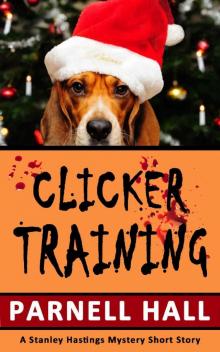 Clicker Training
Clicker Training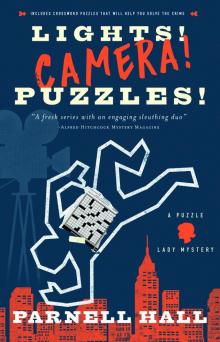 Lights! Camera! Puzzles!
Lights! Camera! Puzzles!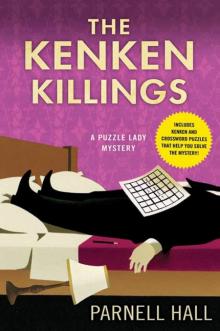 The KenKen Killings
The KenKen Killings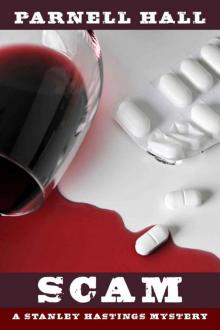 12-Scam
12-Scam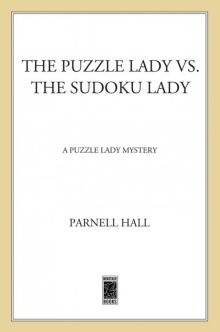 The Puzzle Lady vs. the Sudoku Lady
The Puzzle Lady vs. the Sudoku Lady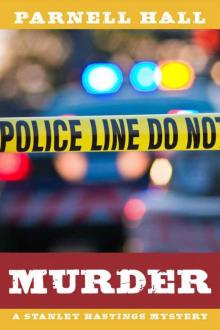 2 Murder
2 Murder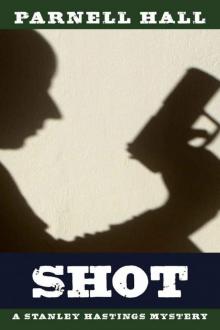 7 Shot
7 Shot You Have the Right to Remain Puzzled
You Have the Right to Remain Puzzled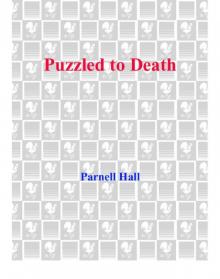 Puzzled to Death
Puzzled to Death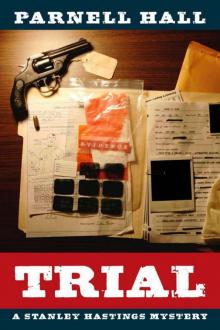 11-Trial
11-Trial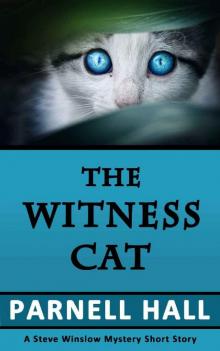 The Witness Cat (Steve Winslow Mystery)
The Witness Cat (Steve Winslow Mystery)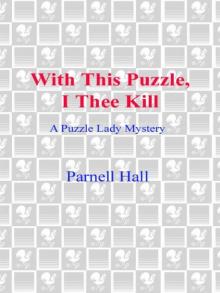 With This Puzzle, I Thee Kill
With This Puzzle, I Thee Kill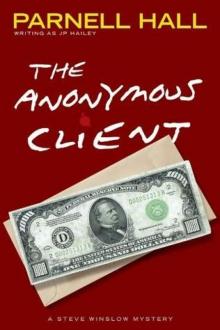 The Anonymous Client sw-2
The Anonymous Client sw-2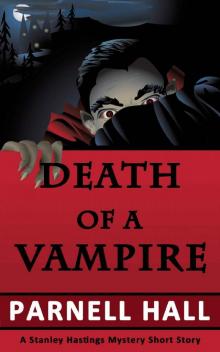 Death of a Vampire (Stanley Hastings Mystery, A Short Story)
Death of a Vampire (Stanley Hastings Mystery, A Short Story)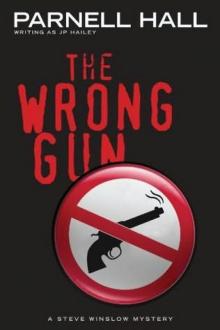 The Wrong Gun sw-5
The Wrong Gun sw-5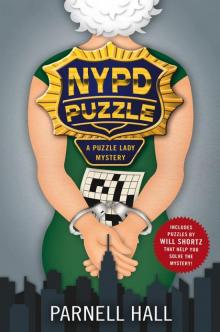 NYPD Puzzle
NYPD Puzzle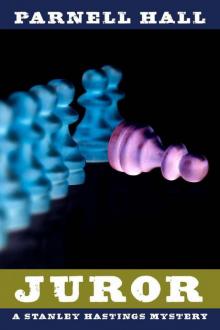 6 Juror
6 Juror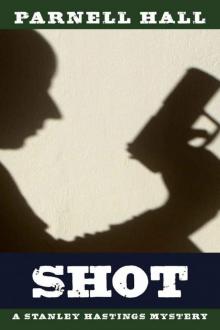 07-Shot
07-Shot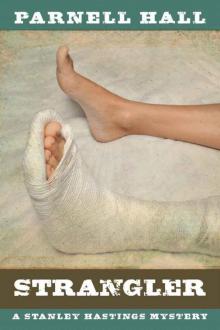 04-Strangler
04-Strangler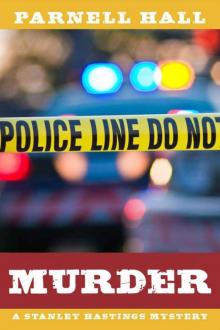 02-Murder
02-Murder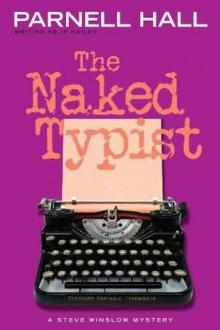 SW04 - The Naked Typist
SW04 - The Naked Typist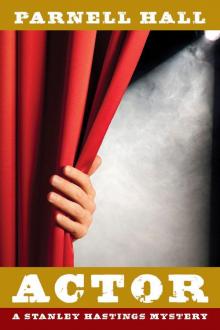 Actor
Actor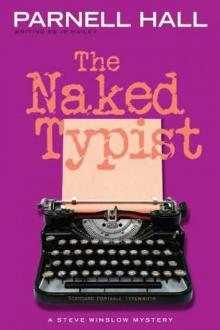 The Naked Typist sw-4
The Naked Typist sw-4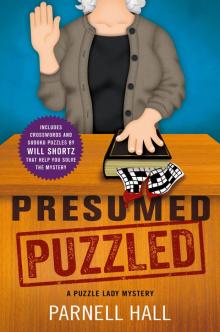 Presumed Puzzled
Presumed Puzzled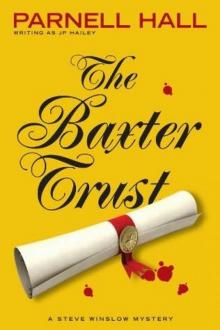 SW01 - The Baxter Trust
SW01 - The Baxter Trust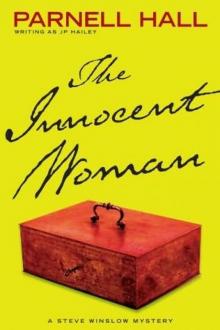 SW06 - The Innocent Woman
SW06 - The Innocent Woman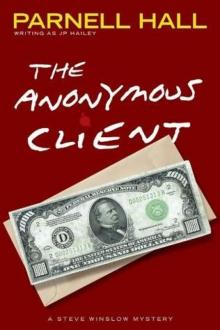 SW02 - The Anonymous Client
SW02 - The Anonymous Client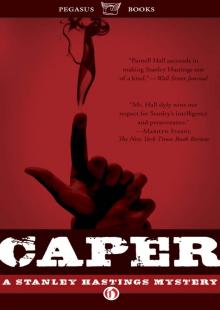 Caper
Caper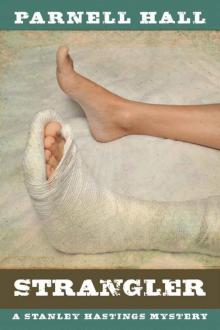 4 Strangler
4 Strangler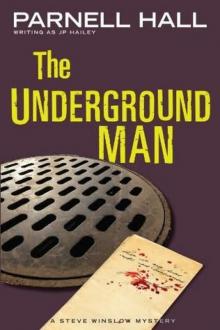 The Underground Man sw-3
The Underground Man sw-3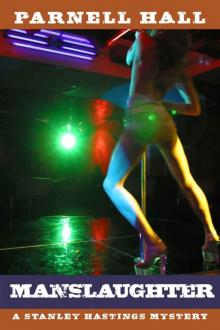 Manslaughter (Stanley Hastings Mystery, #15)
Manslaughter (Stanley Hastings Mystery, #15)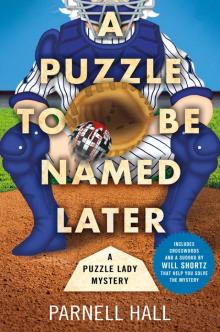 A Puzzle to Be Named Later--A Puzzle Lady Mystery
A Puzzle to Be Named Later--A Puzzle Lady Mystery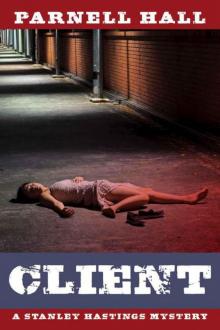 05-Client
05-Client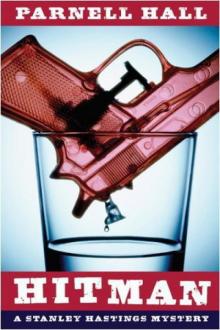 16 Hitman
16 Hitman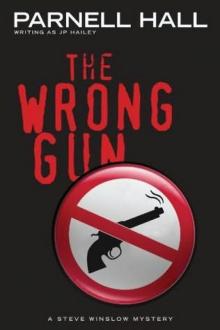 SW05 - The Wrong Gun
SW05 - The Wrong Gun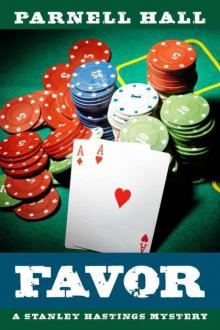 3 Favor
3 Favor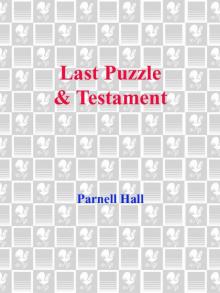 Last Puzzle & Testament
Last Puzzle & Testament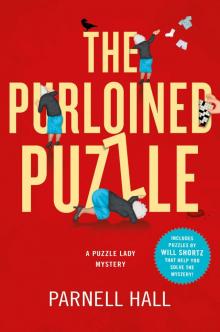 The Purloined Puzzle
The Purloined Puzzle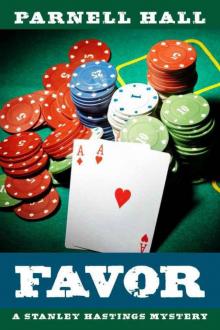 03-Favor
03-Favor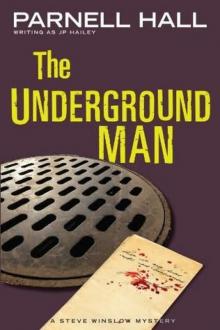 SW03 -The Underground Man
SW03 -The Underground Man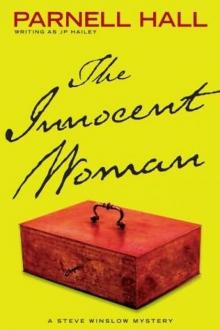 The Innocent Woman sw-6
The Innocent Woman sw-6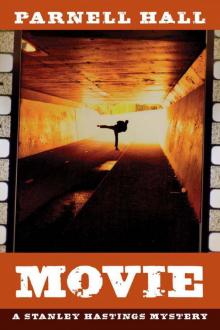 10 Movie
10 Movie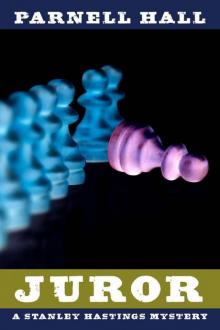 06-Juror
06-Juror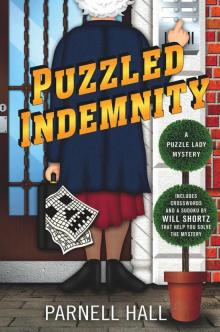 Puzzled Indemnity
Puzzled Indemnity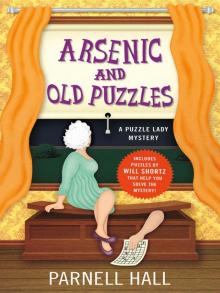 Arsenic and Old Puzzles
Arsenic and Old Puzzles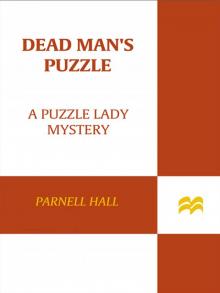 Dead Man's Puzzle
Dead Man's Puzzle Safari
Safari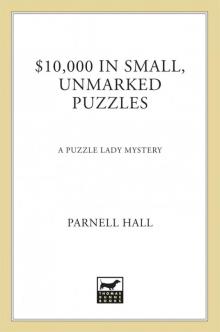 $10,000 in Small, Unmarked Puzzles
$10,000 in Small, Unmarked Puzzles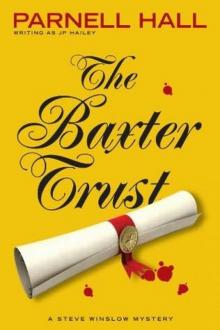 The Baxter Trust sw-1
The Baxter Trust sw-1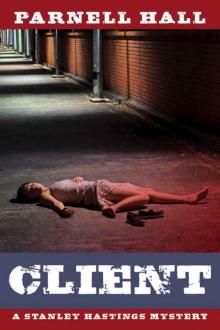 5 Client
5 Client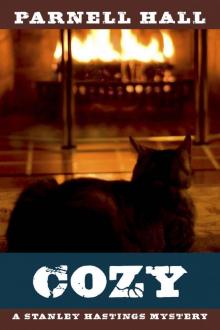 Cozy (Stanley Hastings Mystery, #14)
Cozy (Stanley Hastings Mystery, #14)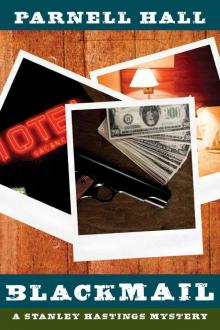 Blackmail
Blackmail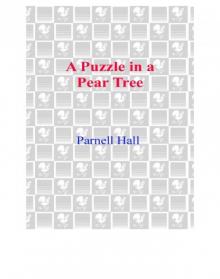 A Puzzle in a Pear Tree
A Puzzle in a Pear Tree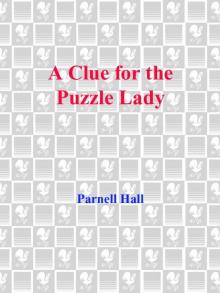 A Clue for the Puzzle Lady
A Clue for the Puzzle Lady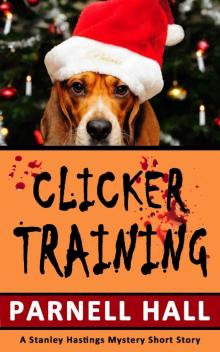 Clicker Training (Stanley Hastings Mystery, A Short Story)
Clicker Training (Stanley Hastings Mystery, A Short Story)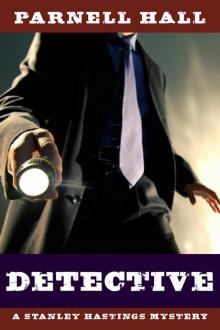 Detective (Stanley Hastings Mystery Book 1)
Detective (Stanley Hastings Mystery Book 1)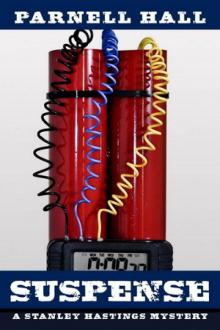 13 Suspense
13 Suspense